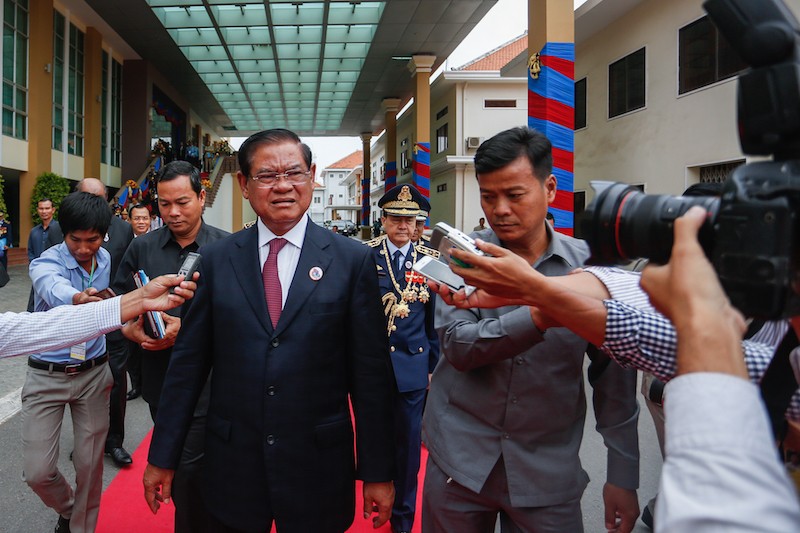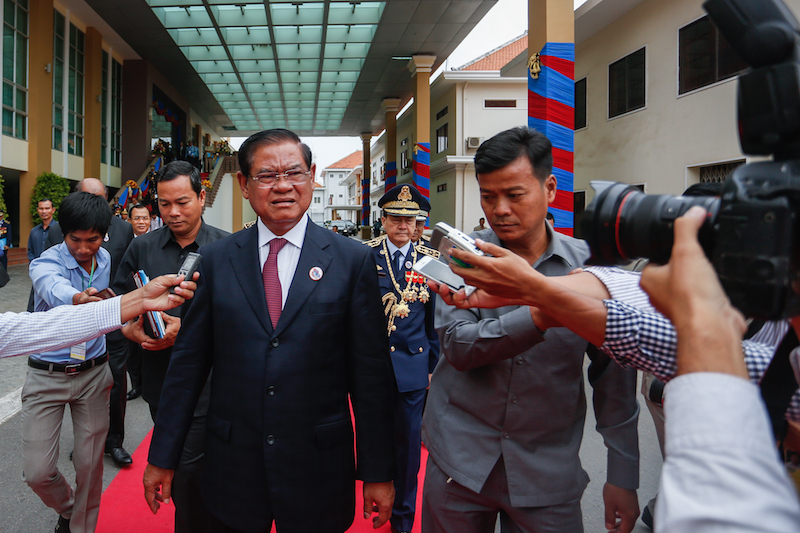Since the opposition CNRP and its supporters took to the streets en masse following the disputed 2013 national election, leaders in the CPP government have warned of the dangers of an opposition-led “color revolution” plunging Cambodia into chaos.
Prime Minister Hun Sen has repeatedly raised the threat, banning any effort to foment such a popular movement and even enlisting the armed forces to ensure his order is carried out.

But on Monday, Interior Minister Sar Kheng flipped the script, saying that a popular uprising against the government would only occur if it failed to meet the people’s demands.
“I want to clarify that according to my understanding, the color revolution could occur because of inactiveness in our management,” Mr. Kheng told police officers at a ceremony in Phnom Penh.
“If our management can allow them to live with happiness together, there is no reason for a color revolution to happen.”
Senior opposition lawmaker Son Chhay welcomed the remarks from Mr. Kheng, the second most powerful man in the ruling party hierarchy.
“Of course, his comments and his advice to the police department is quite reasonable,” Mr. Chhay said. “He recognizes that in general people rise up against the government only when the government does not deliver good services to them, and that is quite true.”
Coming amid a wave of legal cases and arrests of opposition politicians and human rights officers, Mr. Chhay said it was becoming increasingly clear that Mr. Kheng was “a more suitable leader within the ruling party because of his commitment to reform.”
“He’s a reasonable person, I think…compared to other leaders who are more about pointing fingers at the public rather than recognizing their own responsibilities,” he said.
Ruling party spokesman Sok Eysan, however, explained that Mr. Kheng was advising officials to govern effectively specifically to prevent the opposition from inciting revolutions similar to the Arab Spring uprisings that swept across the Middle East in 2011.
“If the public services are not good and do not resolve serious problems concerning the people on time…the opposition group will take the opportunity to create power to overthrow the legal government through using the force of people like you see in the Middle East and North Africa, which is known as a ‘color revolution,’” Mr. Eysan said.
Kem Ley, head of the Khmer for Khmer political advocacy group, said that despite Mr. Kheng’s apparent deviation from the ruling party line, he remained skeptical about the minister’s desire for fundamental democratic reforms.
“The political game I have observed over the last 20 years after the first election, it has just created and established the different actors,” Mr. Ley said, adding that Mr. Kheng often put forth a positive image for the party.
“I can say [there are] bad actors [and] good actors. This is my observation that they play in a different role, but in the same direction to control the country without enforcing and implementing a democratic style.”




